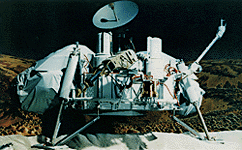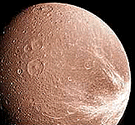What is a star?

Have you ever looked up at the sky on a clear night and wondered about those points of light you see? Many people do. When we look at the night sky and ask questions about it, we become astronomers, and we can know the answers to many of those questions. You can be an astronomer too. All you need to do is dress warmly, go outside on a clear night, look up and wonder. Those points of light we see at night are called stars.
What is a star? |
 |
The stars you see on a clear night, are suns like our own. They look like points of light because they are very far away. If our Sun were far away like other stars, we could look up on a clear night and see it as a star. There are different kinds of stars. Some are big and bright. Some are small and not so bright. Most stars are in between big and small. They are average sized stars. Our Sun is an average star. It seems very big because we are close to it.
| Orion the Hunter |  |
Constellations are imaginary drawings in different groups of stars that make them look like familiar things. They are only pretend pictures to help us find different stars. There are constellations for every season. A well known constellation for winter is Orion the Hunter. |
A springtime constellation is Leo the Lion. In the summer, the handle of the Big Dipper is almost directly overhead, and in the fall you can see Cygnus the Swan overhead.
We live on a planet. It's called Earth. Earth circles our home star, the Sun. There are nine planets that circle the Sun. Their names are
 Mercury, |
 Venus, |
 Earth, |
 Mars, |
 Jupiter, |
 Saturn, |
 Uranus, |
 Neptune, |
and |  Pluto. |
Some planets circle closer to the Sun than Earth, but most circle farther away.
| These circles the planets follow in their journeys around the Sun are called orbits. The Sun with all its planets, including the Earth, is called the solar system. |  Solar System |
What is the Moon? |
 |
| The Moon is a natural satellite. |  |
The Moon orbits the Earth. The Moon is Earth's only natural Satellite. |
| Twelve people have landed and walked on the Moon. They picked up Moon rocks and brought them back to the Earth. |
 |
 |
What is a telescope? |
 |
 |
With a telescope, we can see the rings of Saturn. |  |
 |
What are spacecraft? |
 |
| Here is a picture of a spacecraft named Viking Lander. Two Viking Landers went to Mars and landed there. The Vikings had two cameras each. Each Viking Lander had a long arm that stretched down to the ground and scooped up the Martian soil. |  |
 |
Here is a picture taken by the Viking 2 Lander on Mars. |
Another spacecraft called Mars Pathfinder traveled to Mars.
 |
The Mars Pathfinder spacecraft brought a rover to Mars with it. The Mars Rover traveled away from the Mars Pathfinder and explored the Martian surroundings. |
| Here is a picture taken by the Mars Pathfinder. This is what it might look like if you were standing on Mars. |  |
One day, people will visit Mars. Maybe one day, you can visit Mars. |
| Here is a picture of a spacecraft named Voyager 2. |  |
Voyager 2 traveled to the four biggest planets in our solar system, Jupiter, Saturn, Uranus and Neptune. Here are some pictures taken by Voyager 2.
 Saturn |
 Triton is a moon of Saturn |
 Enceladus is a moon of Saturn |
 Dione is a moon of Saturn |
What is a planetarium? |
 |
A planetarium is a big room with a curved ceiling. On the ceiling you can see the projections of the Moon, planets and stars. Planetariums have room for lots of people. They have programs that teach us about astronomy. Seeing a program at a planetarium is like going to a movie theater, except the movie is always about the night sky.
 |
It's fun to visit a planetarium. |
We know that the stars are suns that are very far away. Astronomers have discovered planets orbiting far away suns. The Earth has life. You and I and all of the plants and animals are forms of life. Some astronomers think that there may be life on some planets in orbit around far away suns. But we don't know for sure. Could it be, that when we are looking at a star, someone is looking back? Many astronomers think this is very possible.
It's fun to be an astronomer. We can look, wonder and ask questions about the night sky. So on a clear night, dress warmly, go outside, look up, and have fun looking at the stars.
 |